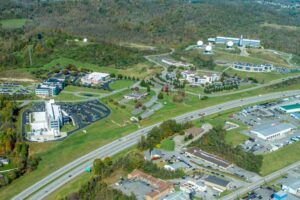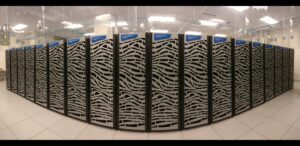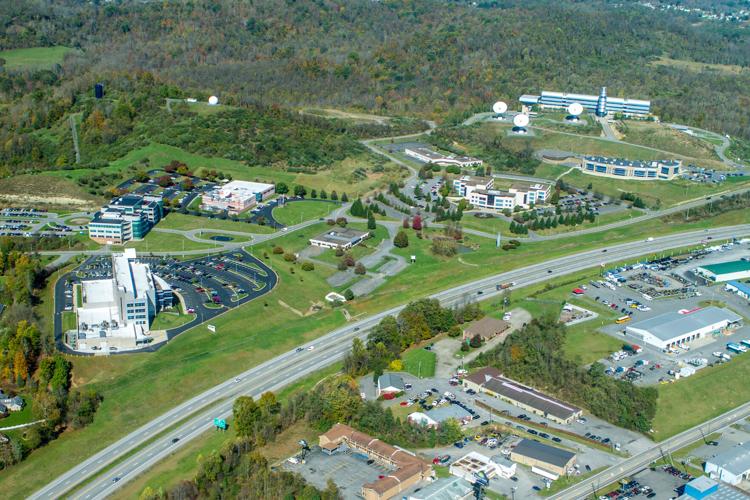by John Mark Shaver FAIRMONT NEWS EDITOR Feb 10, 2025
CHARLESTON, W.Va. (WV News) — With the 2025 West Virginia legislative session slated to start this week, technology sector leaders are hoping that legislators will work to improve workforce development and power needs and to foster tech in the Mountain State.
TechConnect West Virginia Executive Director Ariana Shives said the state is primed to be a leading force in emerging technologies, digital identity and cybersecurity, but noted that those industries need legislative support to be able to grow.

“The state should prioritize entrepreneurship, early-stage tech startups and workforce development by expanding access to funding, improving tax incentives and aligning education with industry needs,” Shives said. “Investing in digital identity and national security-adjacent technologies will drive economic growth and position West Virginia as a hub for innovation in a critical sector.”
West Virginia High Technology Foundation President and CEO Jim Estep, too, said he wants to see the legislature put an emphasis on investment on workforce recruitment and business incentives.
Specifically, he said there’s a growing need in the I-79 High Technology Park — which the foundation oversees — for power availability.

“Back in September, NOAA announced that they would bring one of their new supercomputing systems to Fairmont, which is going to be the flagship computing resource for their rapidly growing artificial intelligence development,” Estep said. “We’re very busy investing in the infrastructure necessary to support that, but they have plans to grow their artificial intelligence development pretty extensively, which will mean addition supercomputing systems and data center services. …
“I’m really worried about our ability to access the power we’re going to need to support those systems, and if we don’t have that power, we’re going to lose a potentially transformative opportunity, so I hope the legislature will look very hard at that issue and think specifically about how the state might be able to develop more natural gas-based power generation.”
Both Estep and Shives said training and attracting a dedicated workforce for the technology and information sectors is one of the biggest challenges facing the state, with Estep saying one of the state’s top concerns should be the availability of a workforce that has the needed education and experience to fill jobs.
“We’ve been 50th in educational attainment for probably 60 years,” Estep said. “The only way you fix that problem is by recruiting jobs that require higher educational attainment and recruiting workers to fill those jobs. Eventually, you’ll establish a steady stream of indigenous workers to fill those jobs, but with our educational attainment levels, we need to intermediately recruit workers.”
Shives, meanwhile, noted that without giving workers strong incentives, the state risks not only facing struggles with recruitment, but losing its best tech workers to out-of-state opportunities.

Submitted photo
“Infrastructure, broadband and a business-friendly environment must be priorities to support remote and hybrid work,” Shives said. “Additionally, West Virginia must actively shape its role in the digital economy, particularly in AI, cybersecurity and digital identity. Legislative policies should remove barriers for startups and ensure economic development initiatives are aligned with the needs of tech entrepreneurs.”
While both officials see challenges that the state must overcome, they believe the state also already has strengths in the tech sector on which the legislature can capitalize.

Shives noted that thanks to assets like the FBI’s Criminal Justice Information Services Division in Clarksburg, the state is already a leader in biometrics, cybersecurity and digital identity.
“The state should build on this expertise by attracting investment and incentivizing innovation in secure tech sectors,” Shives said.
Beyond the power needs of the I-79 Tech Park, Estep hopes the legislature capitalizes on federal interests in West Virginia and provides organizations with the tools needed to find success, grow and invest hundreds of millions of dollars more in the state.
“To take advantage of enormous opportunities we’ve been given, like by NOAA establishing a significant commercial climate and weather sector, we’ll require additional infrastructure and investment by the state to enable us to realize that potential,” Estep said.
Fairmont News Editor John Mark Shaver can be reached at 304-844-8485 or jshaver@theet.com.
Article as originally published by WVNEWS.COM on February 10, 2025.


